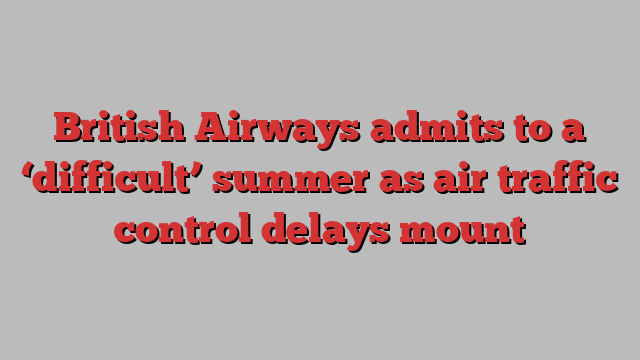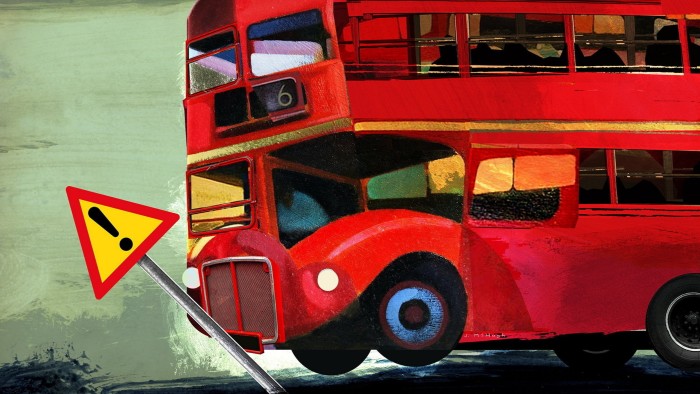
British Airways admits to a ‘difficult’ summer as air traffic control delays mount
Unlock the Editor’s Digest for free
Roula Khalaf, Editor of the FT, selects her favourite stories in this weekly newsletter.
British Airways has faced a “difficult” summer of flying, with nearly half its flights hit by the air traffic control delays that have dogged European aviation, senior bosses have told staff.
The latest disruption to hit the airline came this week, when BA was forced to cancel 59 flights to and from London’s Heathrow airport on Thursday and Friday because of air traffic control delays caused by bad weather. Its other flights from the airport suffered lengthy delays.
Writing to staff on Friday morning in an email sent to reassure staff after one of BA’s “toughest [recent] days”, two of the airline’s senior executives said the disruption added to a frustrating period for the airline.
“Sadly, last night follows what has been a difficult summer for you all, as a result of some of the external challenges we have faced,” René de Groot, chief operating officer, Andy Best, and chief technical officer, wrote in the email seen by the Financial Times.
In all, 42 per cent of BA’s flights this year have been disrupted by air traffic control restrictions, up from 24 per cent in 2019, the last year of flying before the coronavirus pandemic disrupted aviation, they said.
The executives also warned that BA would be forced to “make a number of cancellations” to flights operated by its fleet of Boeing 787 aircraft over the next 10 days because of “continued . . . delays to the delivery of engines and parts from Rolls-Royce”.
Rolls-Royce said it was working with BA and other customers to minimise the impact of limited availability of spares due to supply chain constraints. “Unfortunately, this is an issue affecting the whole aerospace industry,” it said.
Airlines across Europe have complained about disruption from air traffic control all summer, as bad weather, the closure of airspace because of the war in Ukraine and a shortage of controllers have combined to challenge the industry’s resilience.
In the email to staff, BA said it would work with the UK’s National Air Traffic Services (Nats), which manages the country’s airspace to improve resilience.
Nats said restrictions are only applied for safety reasons, and it would work with BA “to minimise disruption during challenging operational days”.
BA has also faced years of scrutiny for its poor operational performance since the pandemic, after more than 10,000 staff were cut in 2020.
The carrier has long suffered from creaking technology, operational complexity and exposure to London’s Heathrow airport, which operates at full capacity, and its owner has unveiled a £7bn investment programme to raise standards at the airline.
The air traffic control issues highlight how BA’s senior management are increasingly frustrated that external issues are damaging its reputation.
Sean Doyle, BA chief executive, has prioritised rebuilding the airline’s reputation since he took over at the height of the pandemic in late 2020. The £7bn investment from owner IAG includes new aircraft, lounges, website and app.
Senior bosses at IAG, an airline conglomerate that also owns carriers including Iberia and Aer Lingus, are supportive but have acknowledged the airline needs to improve its reputation.
BA declined to comment.






